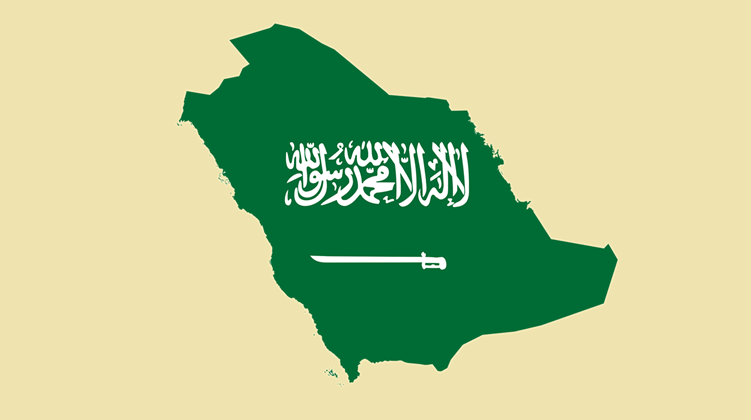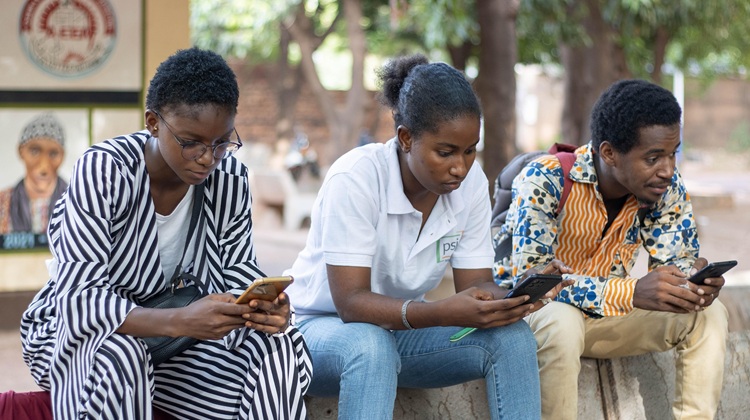Charting the course to shared prosperity in Nigeria
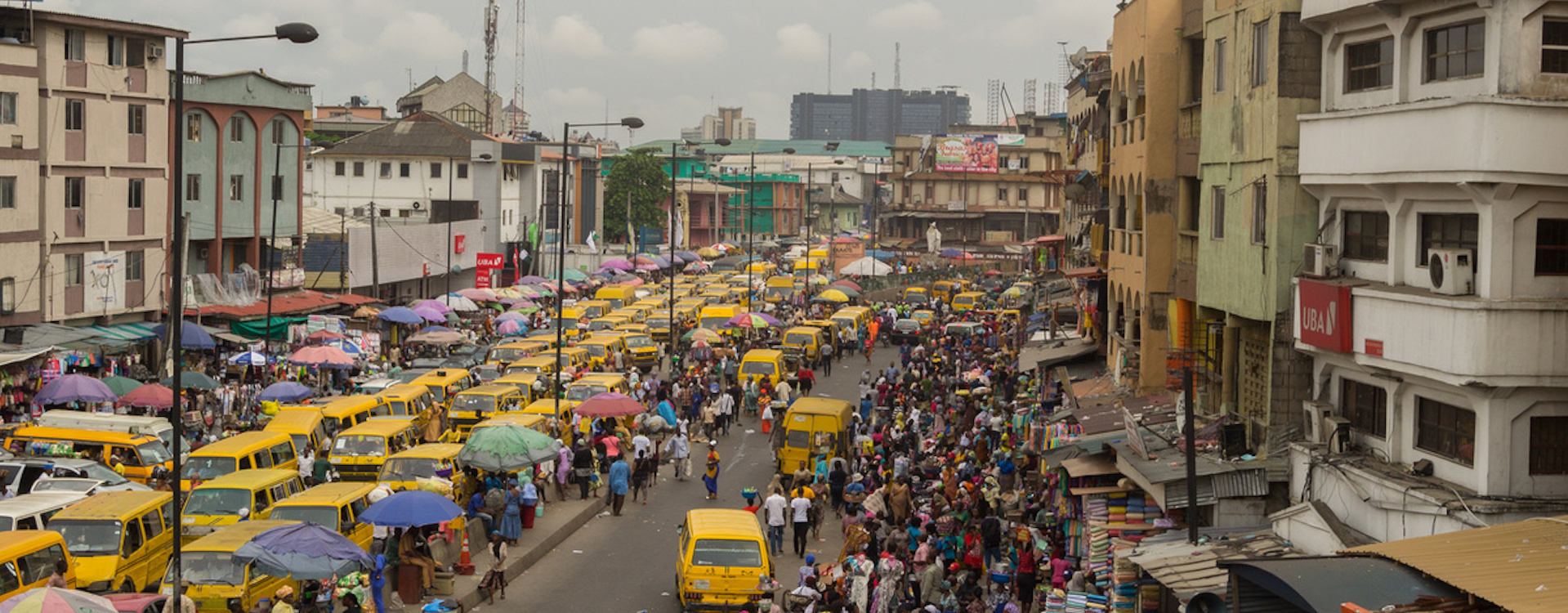
With aggressive but reasonable policy interventions, Nigeria could have a significantly brighter future.
Despite a well-educated elite and abundant natural resources, Nigeria has become symbolic of unfulfilled potential due to leadership failure, weak institutions and policy missteps. The ruling elite has failed to transform the country’s potential into prosperity.
As a result, petroleum-rich Nigeria can hardly boast of any meaningful development progress six decades after independence. The country is still grappling with poverty, ailing infrastructure, socio-economic instability and underdevelopment. The situation isn’t hopeless though, as a new Institute for Security Studies (ISS) report shows.
After a shift from agriculture to crude oil and gas in the late 1960s, economic growth in Nigeria has continued to be driven by volatile oil prices and stayed largely non-inclusive. Most Nigerians remain under the burden of poverty, inequality and unemployment. More than 80 million people survive on less than US$1.90 a day, the international measure for extreme poverty, and the country has been declared the ‘poverty capital’ of the world. Violence, criminality and other forms of insecurity have also worsened.
In the north, violent extremism continues to destroy lives and livelihoods, while banditry has become an even deadlier threat. Separatists’ agitations have also escalated into violent confrontations between the secessionists and security forces.
Six decades after independence, petroleum-rich Nigeria has made little meaningful development progress
So what could be done to turn around the country’s misfortune? How can Nigeria become a global player rather than a poverty capital? New ISS African Futures and Innovation research shows how appropriate policies and determined implementation by the Nigerian government could help the country’s development prospects.
Using the International Futures modelling platform, the analysis first presents Nigeria’s current development path. It shows how the country isn’t on track to achieve most of the SDGs by 2030 and will probably have the highest number of poor people globally by 2050.
Nigeria is forecast to have a population of 450 million by 2050, by which time it will be the third most populous country globally. The ISS analysis simulates the impact of five sectoral policy interventions that could propel Nigeria towards inclusive sustained growth and development.
The first intervention – improved governance and security – emulates the impact of improved governance, security and stability in Nigeria. It also models the effects of government efforts to reduce corruption and improve social inclusion through better democracy, gender empowerment and support for poor and vulnerable households through well-targeted social grant programmes.
Changing Nigeria’s economic growth model would have the most significant effect on long-term development
The second intervention – demographics and human capital – aims to set Nigeria on a different demographic trajectory and improve the education and health systems. It models the effect of lower fertility rates, an increase in the quantity and quality of education, and better access to affordable and quality healthcare.
The third intervention – an agricultural revolution – emulates the impacts of a coordinated push to unlock Nigeria’s agricultural potential. It improves agricultural productivity by adopting modern and climate-smart agriculture technologies, improved seedlings and increased fertiliser use. This is complemented by efforts to reduce post-harvest losses through better storage facilities and market access for crops and animal products and address conflicts and disputes around land.
The fourth – basic infrastructure development – emulates the impact of the construction and rehabilitation of transport infrastructure. Also, the electrification rate in urban and rural areas is increased through decentralised mini- and off-grid schemes using renewable energy. Improvements in digital connectivity unlock the provision of essential services such as better water and sanitation through public-private partnerships.
The final intervention – on economic and export diversification – reflects a future where Nigeria has diversified its production and export bases to substantially reduce its high dependence on crude oil exports.
The 2023 elections are an opportunity to choose a developmentally oriented governing elite
Of all five intervention clusters, the last one on changing Nigeria’s economic growth model has the most significant effect on the country’s long-term development prospects. However, in the short to medium term, agricultural development appears to be the low-hanging fruit that would boost the population’s wellbeing.
Meanwhile, the Super Nigeria scenario, which combines all the interventions, shows that an integrated approach or policy coordination across sectors could yield a significantly brighter future for the country (Charts 1 and 2).
Chart 1: GDP per capita (PPP) – Super Nigeria scenario vs Current Path
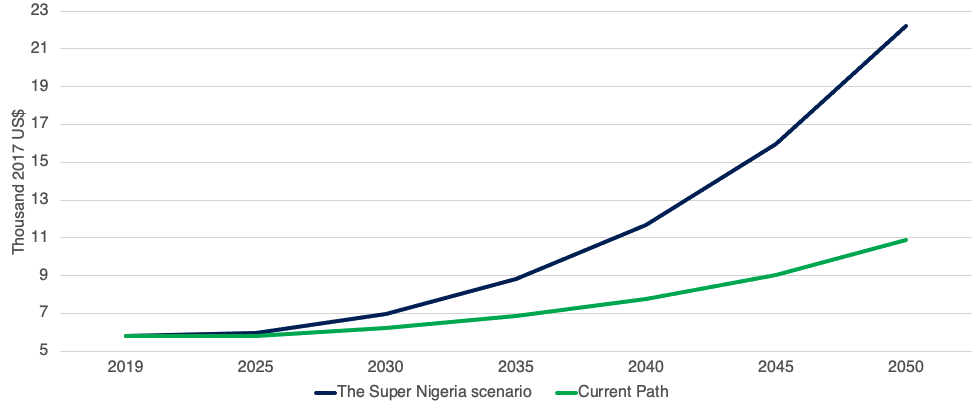
Source: Source: Forecast in IFs version 7.63; historical data from the International Monetary Fund
Chart 2: Extreme poverty at US$1.90 – Super Nigeria scenario vs Current Path
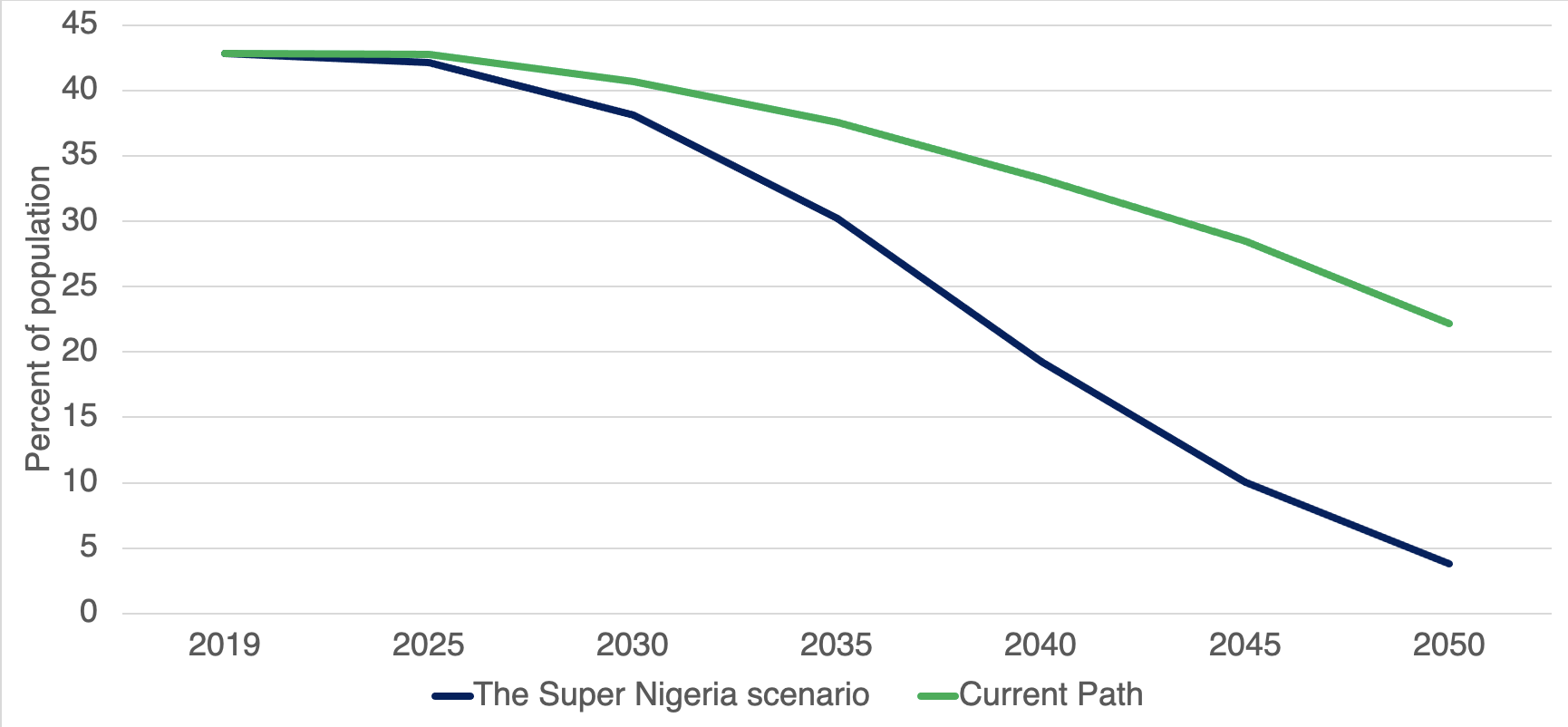
Source: Forecast in IFs version 7.63; historical data from the World Bank
If bold and transformative actions are not taken, Nigeria will probably continue to lag behind in various economic and human development indicators. The challenge in Nigeria is not the absence of ideas and plans but the lack of implementation. The country has had several development plans, but its ability to carry them out has been disappointing. Turning Nigeria’s misfortune around will require effective leadership and a determination to see policies put into action. The looming 2023 federal and state elections offer an important opportunity for Nigerians to end leadership failure by choosing a developmentally oriented governing elite. This elite could change the country's trajectory through sound economic development practices, social services and strong institutions.
This article was first published by ISS Today.

